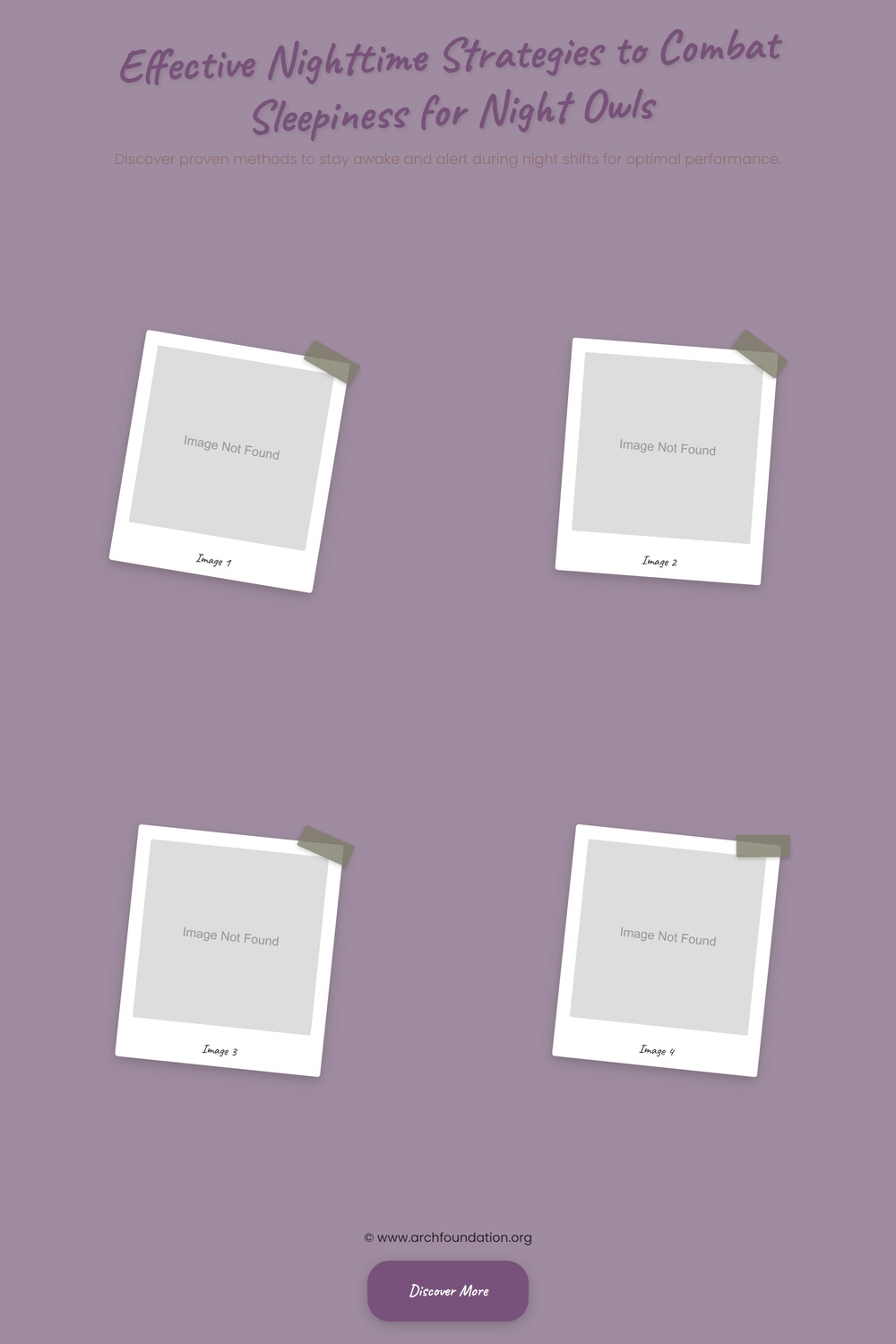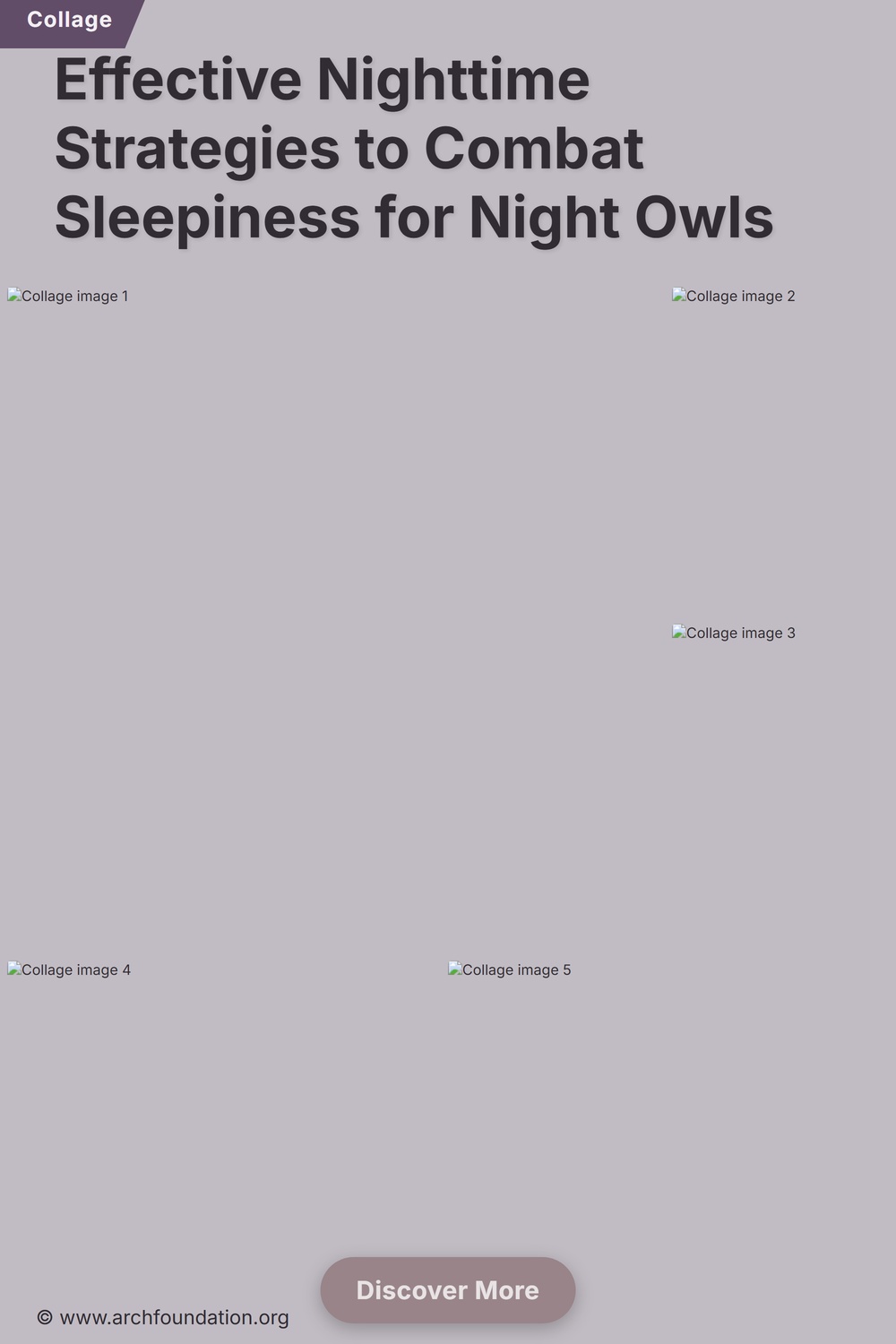Your cart is currently empty!

Effective Nighttime Strategies to Combat Sleepiness for Night Owls
Effective Nighttime Strategies to Combat Sleepiness for Night Owls
Many individuals find themselves needing to stay awake at night due to work commitments or lifestyle choices. While staying up late can adversely affect your health, there are effective strategies to help you remain alert and productive during those nighttime hours. Below, we explore various methods to combat sleepiness and enhance your night-time stamina.
1. Comprehensive Methods to Stay Awake at Night
Utilize Tea or Coffee – A Classic Approach
One of the most common and effective ways to fend off drowsiness is by consuming tea or coffee after dinner. These beverages contain caffeine, a stimulant that tricks the brain into staying alert and focused. The best time to enjoy a cup of tea or coffee is about 30 minutes post-dinner. However, avoid drinking it too late, as this could disrupt your sleep schedule when you do decide to rest. If you are sensitive to caffeine, this method might not be suitable.

Stay Hydrated – Quick Wake-Up
As your body is naturally inclined to rest at night, pushing it to stay active can lead to dehydration, causing fatigue and sleepiness. Drinking a glass of cool water can invigorate your senses and help you regain alertness during your work hours.
Work Under White Light
White light can effectively keep you awake by deceiving your visual perception. Studies have shown that working under white light enhances concentration. Choose a light with appropriate brightness to avoid eye strain and discomfort.

Take Regular Breaks – Relaxation is Key
Incorporate short breaks of 5-10 minutes into your work schedule. These breaks can include standing, walking, or doing light exercises to alleviate mental tension and relax both your mind and body. This practice is also effective for those working in office environments during the day.
Listen to Music for Alertness
Music can be a powerful ally in maintaining energy levels, as it influences emotions and cognitive function. Upbeat tunes are particularly effective in keeping your spirits high and your mind sharp during night shifts. Keep the volume low to avoid harming your hearing and to maintain focus on your tasks.

Stimulate Your Body
When your body signals it’s time to rest, you can counteract this by stimulating certain areas. Try gently tugging on your earlobes, stretching your limbs, rotating your shoulders, and taking deep breaths. Looking into the distance can also relax your eyes.
Prioritize Daytime Rest
If you know you’ll be up late, prioritize getting plenty of rest during the day. Achieving a restful daytime sleep can make staying up at night less daunting. Here are some tips:
– Engage in yoga or meditation before sleeping to calm the mind and enhance sleep quality.
– Avoid watching the clock and focus on steady breathing.
– Choose soft, comfortable sleepwear and bedding.
– Use essential oils for a calming environment.

Engage in Conversations
Speaking with friends or family can momentarily distract you from sleepiness. However, manage your conversation time to ensure it doesn’t interfere with work productivity.
2. The Health Consequences of Frequent Late Nights
While nighttime productivity techniques are helpful, excessive late-night activity can have serious health repercussions. Sleep is vital for physical and mental recovery. Chronic sleep deprivation can:
– Impair brain function, slowing cognitive processes and memory retention.
– Cause emotional instability, leading to irritability and fatigue.
– Increase the risk of weight gain.
– Accelerate skin aging, causing conditions like acne and wrinkles.
Recent studies indicate that insufficient sleep may double the risk of mortality, including heart-related issues. It is crucial to ensure a regular sleep schedule of 7-8 hours nightly for overall well-being.
While work or study may necessitate late hours, it’s essential to balance your schedule to maintain health and productivity.

Leave a Reply